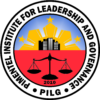If Lee Kuan Yew did not adopt authoritarian ways of governing Singapore, would it have attained its first world status today?
To say, ‘No’, would be to indulge in speculation.
But, to say, ‘Yes’, would pay, at least, a left handed tribute to the use of dictatorial ways in running governments in general.
Which, for us, Filipinos, would be most difficult to do considering that in 1972 President Ferdinand Marcos proclaimed martial rule in the country that deprived the people of their basic rights and liberties.
That sad state of affairs lasted for roughly 14 years when a good number of our citizens were imprisoned without due process or executed extrajudicially.
How come, then, that Singapore’s Lee was successful in turning his country around from third world status to first? And the Philippines’ Marcos was unable to do?
Aside from the much-acclaimed leadership qualities of Lee Kuan Yew, its founder, maybe, the fact that the country’s land area covers only 716.1 square kilometers has a lot to do with Lee’s success in governing Singapore as its quasi-authoritarian ruler since it became an independent State in August, 1965.
Some islands in the Philippine archipelago are, in fact, much bigger in size than Singapore.
Off the tip of the Zamboanga Peninsula in Mindanao is the island of Basilan with a land area of 1,372.2 square kilometers. It is roughly twice the size of Singapore.
In the Visayas, the island of Bohol with 4,821 km² is also much larger than Singapore.
Another island in the Visayas, Mindoro is even much, much bigger. It has 10,572 km².
In any event, now that Lee is dead at 91, tributes about his visionary and practical leadership has been pouring in from all the corners of the globe.
In this age of the internet, inevitably, however, ‘other’ views on the way Lee ruled his country are bound to emerge.
One example is that of Phil Robertson, deputy Asia director at New York-based Human Rights Watch. He is quoted by the Guardian of March 30, 2015 that “Lee’s ‘tremendous’ role in Singapore’s economic development was beyond doubt. But, it also came at a significant cost for human rights, and today’s restricted freedom of expression, self-censorship and stunted multiparty democracy.”
Then, as we go to the press, a report also from the Guardian told of a 17-year old Singaporean boy, Amos Yee, who was arrested by the police for posting a blog critical of Lee Kwan Yew.
In his blog, Yee criticized Lee Kuan Yew for being “a horrible person, because everyone is scared (of him).”
Another critic is an independent filmmaker, Martyn See, whose work was reportedly banned in Singapore. He told the Guardian: “The People’s Action party has only known to counter dissent by crushing it. It’s in the DNA of all authoritarian systems.”
The government’s repressive acts towards freedom of expression, however, were not without backers. In fact, a lawyer in Singapore was quoted by the Guardian as having said that “‘There is a limit to freedom of speech. If the line separating freedom and offence is crossed, the person will have to face the consequences.’
No matter what his adversaries said of him – in life or in death – Lee Kuan Yew is very much a hero to the overwhelming majority of his people.
And to a leader of his country, there can hardly be anything more rewarding than the adulation of his constituents in his life, and even after he had gone over to the Great Beyond.

